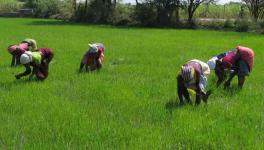COVID-19: Fresh Infections Decline, Industries Violate Lockdown Regulations in Tamil Nadu
Representational use only.
The number of new COVID-19 infections have shown signs of decline in Tamil Nadu, bringing huge relief to the overwhelmed health system. Though the cases have reduced in major cities, the rural areas including tribal hamlets continue to face the heat of the second wave.
The industrial sector, meanwhile, has paid little respect to the lockdown guidelines of the state government instructing the engagement of 50% employees for work. Most industries are engaging more workers leading to higher infections, while the government has done little to end this practice.
The occupancy of beds also have reduced considerably, but the increasing infections of Mucormycosis and the shortage of drugs remain a threat. Further, the rapid progression of disease and COVID-19 pneumonia among the young, leading to higher number of deaths, is another cause for concern.
Along with this, the demand for vaccines has also increased across the state, while the shortage in supply continues. The state government’s demand for leasing the Integrated Vaccine Centre (IVC) in Chengalpattu for vaccine production has not received any response from the Union Health Ministry.
SIGNS OF DECLINE IN INFECTIONS
After hitting an all time high of 36,184 fresh infections on May 21, the cases have dropped to 24,405 on June 3 in the state. The number of active cases have also declined to 2,80,426 on June 3, after hitting a peak of 3,13,048 on May 27.
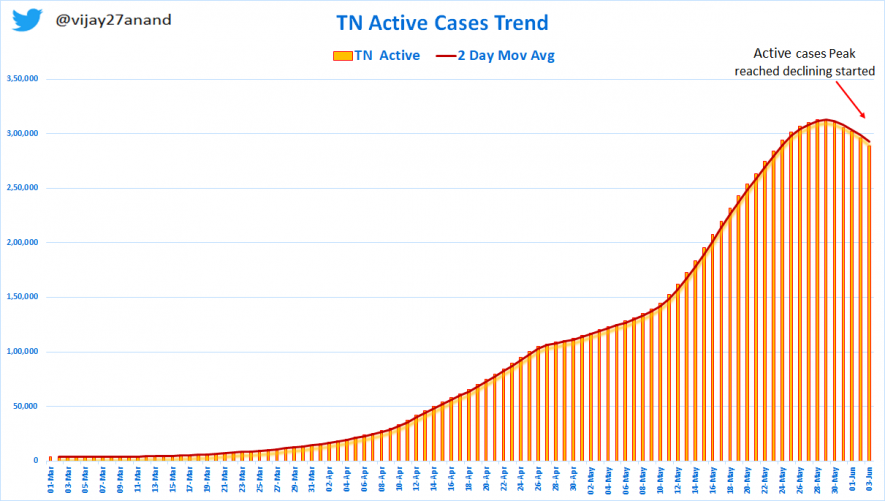
Courtesy: Vijay Anand, COVID-19 Data Analyst
Commenting on this, Dr T Sundararaman, global coordinator of the People's Health Movement, said, “The decline could signal the end of the second wave. But immunity is far away.”
The government of Tamil Nadu is reportedly contemplating the easing of lockdown measures, as the present total lockdown will end on June 7. The Chief Minister in a press briefing said that it is not possible to extend the lockdown considering the hardships of the people.
“The hospitals are able to cope with incoming patients. The lockdown is difficult to maintain and is very costly. The new government has taken things seriously and has ensured availability of beds. I am not sure whether they are looking into establishing new medical facilities,” Dr Sundararaman said.
TPR DECLINES, RURAL AREAS FACE RISK
The test positivity has reduced to 14.5% on June 3, while the number of deaths in spite of slight reduction remains above 450 since May 25. The rural districts, particularly in the western part of the state have logged an increase in active cases since the last two weeks.
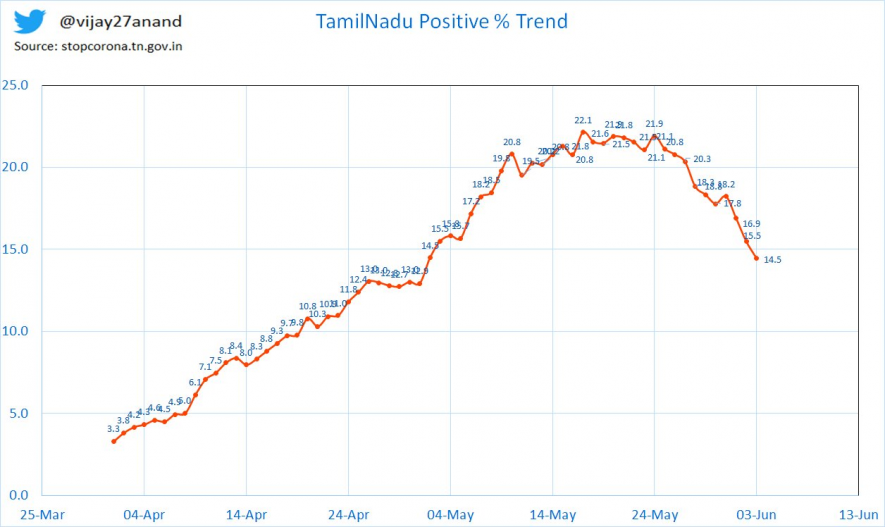
Courtesy: Vijay Anand, COVID-19 Data Analyst
Coimbatore has overtaken Greater Chennai Corporation (GCC) in daily infection, though active cases continue to decline. Tiruppur, Erode, Namakkal and Salem continue to report an increase in active cases. Thanjavur, Thiruvarur and Nagapattinam in the delta region, too, exhibit a similar pattern.
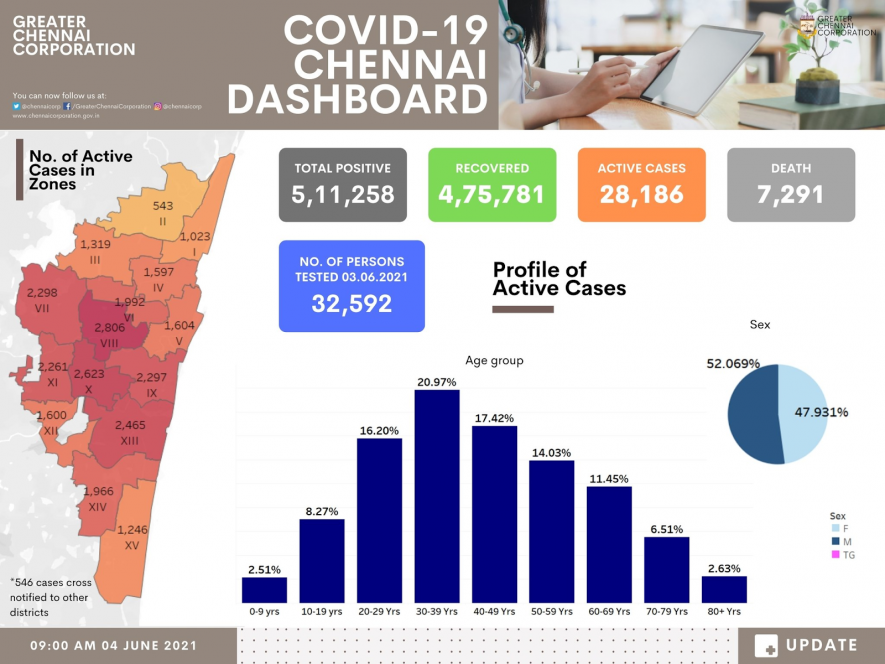
The second wave has also witnessed an increase in hospitalisation, while cases of rapid progression of disease, COVID-19 pneumonia among young, are causing more deaths.
BED OCCUPANCY DECLINES, MUCORMYCOSIS THREAT INCREASES
The demand for hospital beds has also declined, in line with the decreasing fresh infections. The state has a total of 50,034 oxygen beds of which 11,345 are free. This accounts for 22% vacancy while it was 4.9% on May 21. The vacancy of non-oxygen beds has increased to 51% from 29% during the same period. The occupancy of ICU beds continues to be on the higher side with only 8% vacancy.
Also read: COVID-19: The Second Wave Is Not Over Yet
But, while ambulances queuing in major hospitals is history for now, mucormycosis infections are increasing. The state has recorded 673 cases of mucormycosis, leading to an increase in demand for the drugs to treat the infection. As such, Chief Minister M K Stalin in a letter to the union Health Minister has sought an allocation of 30,000 vials instead of the current allocation of 1,790.
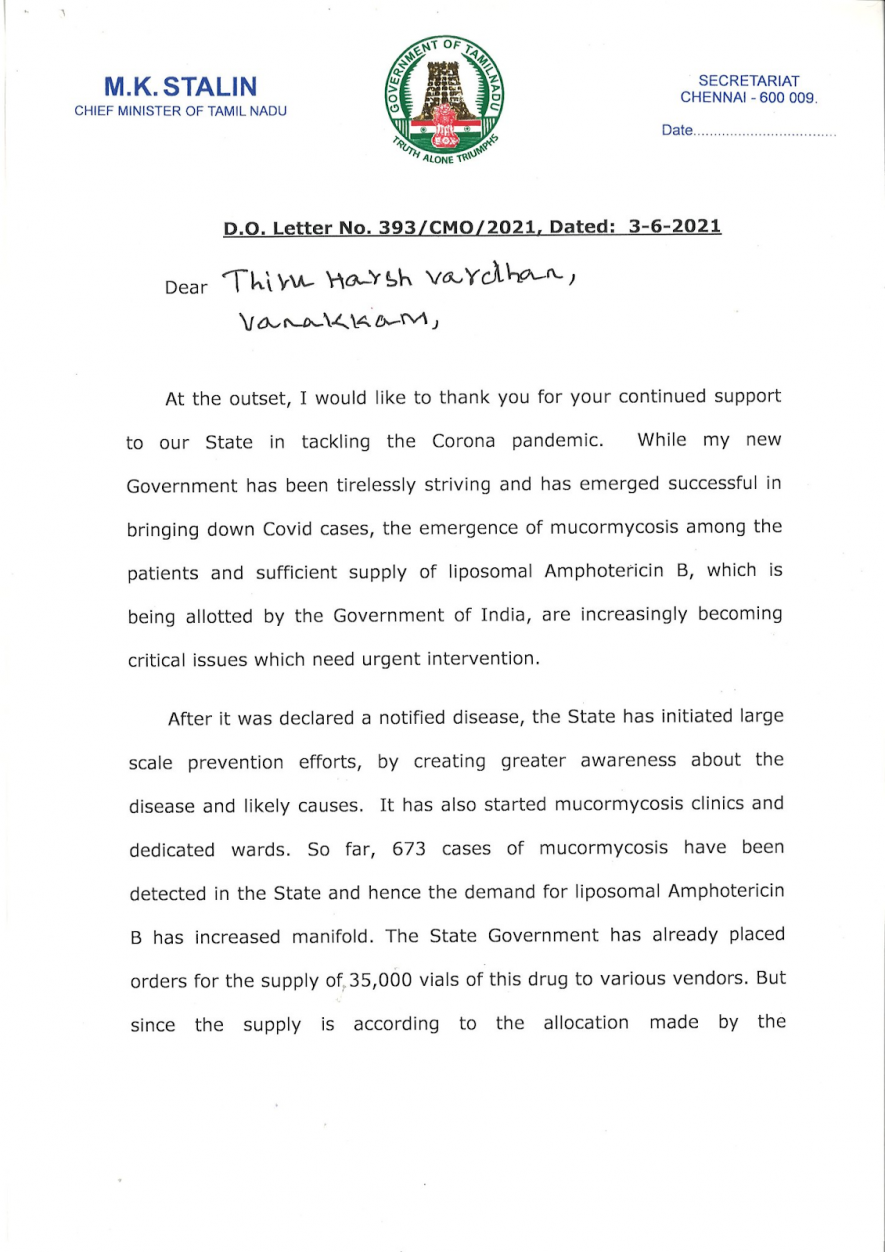
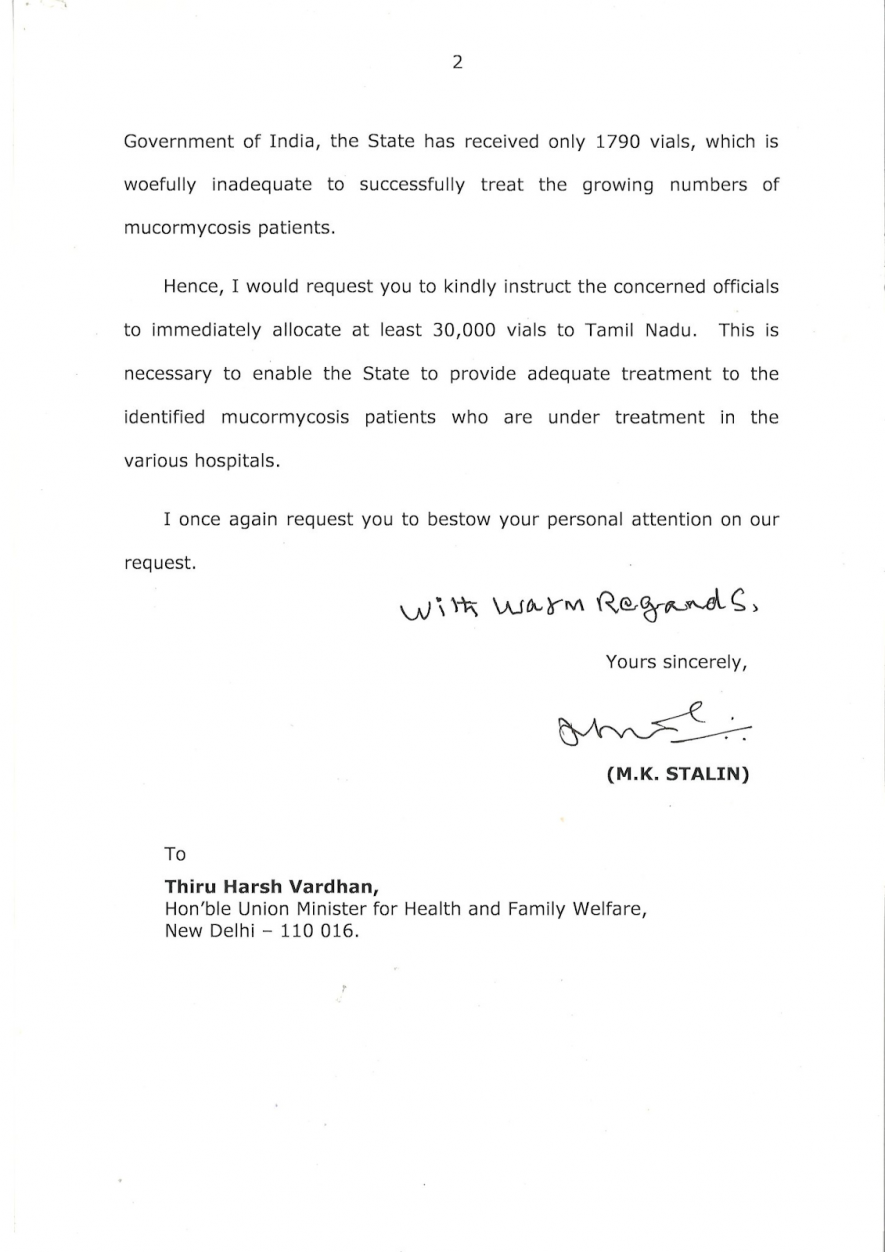
GOVT SHOULD ACT ON VIOLATING INDUSTRIES
The industries, including automobile manufacturers in Chennai and suburbs were permitted to function even during the ongoing total lockdown citing essential services. However, nearly all these industries have been found to violate the Standard Operating procedure (SOP) which insisted in engaging 50% of the workforce.
S Kannan, deputy general secretary of the Tamil Nadu unit of the Centre of Indian Trade Unions (CITU) said, “The government has failed in its duty to monitor whether the industries are following the SOP. Several industries have violated the government regulations but are having a free run. The workers are facing an uphill task of managing their work and protecting themselves from the infection.”
CITU has alleged that several automobile and auxiliary industries are working with more employees than permitted.
“Hyundai is engaging 70% workers in spite of the government regulations. Many other organisations are not providing basic support to the workers, including giving holiday on the day of taking vaccines, which is being done by the same companies in other countries. The labour laws and government regulations are becoming so weak, that the companies are exploiting the workers even during the pandemic,” Kannan said.
Also read: COVID-19: With Rush for ICU and Oxygen, Situation Slipping Out of Hands in Tamil Nadu
Get the latest reports & analysis with people's perspective on Protests, movements & deep analytical videos, discussions of the current affairs in your Telegram app. Subscribe to NewsClick's Telegram channel & get Real-Time updates on stories, as they get published on our website.















